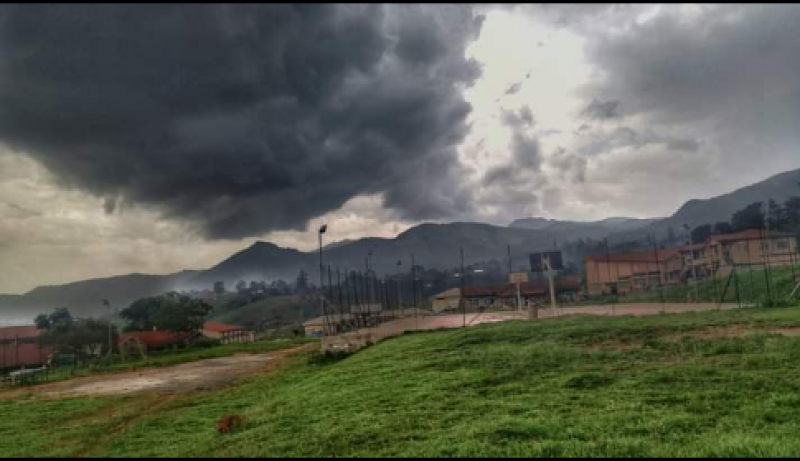
The corpses of the duo were abandoned at the Mile 10 Junction in Bambili, Tubah Subdivision, Mezam Division of Cameroon’s North West Region.
Until he joined the separatist movement in 2018, Fuonkeh worked as a motor mechanic in Yaounde. A pump-action gun and one automatic pistol were recovered from the deceased fighters, open sources reported.
Owing to the strategic importance of Bambili, a town hosting the University of Bamenda, Gendarmes had put up a spirited resistance against separatists. The gunmen are said to have fled to nearby bushes in Babanki and Sabga from where they zoom into Bambili to harass the population.
Tuesday’s operation carried out by security forces was aimed at weeding off the last vestiges of separatists in Bambili. Although some separatists fighters thought to have escaped the military firepower, Joel Tanteh and Fuonkeh succumbed to bullet wounds.
Locals in Bambili say Joel was a notorious Ambazonia fighter who gave the population hard times.
“Joel did not allow us to sleep. He was both an armed bandit and a separatist fighter. In fact, he was a dangerous element,” a local residing in Mile 10 Bambili told Cameroon-Info-Net. “We can now heave a sigh of relief. Since Joel was the gang leader here, we hope to now sleep with both eyes covered. Students can also study without fear of being kidnapped by separatist fighters. We hope that the military will continue to make it possible for us to live in peace.”
Cameroon’s state forces have been battling to dislodge armed separatists who pitched their tents in the North West and South West Regions since Anglophone protests transformed into an armed conflict in 2017.
Corporate demands by Common Law Lawyers and Anglophone Teachers led to protests in November 2016. The street demonstrations later morphed into ongoing running gun battles between state forces and armed separatist fighters in the predominantly English-speaking regions, leading to untold destruction of human lives, their habitats, and livelihoods.
Tit-for-tat killings, kidnappings, arsons, maiming, and outright terror have become part of daily lives in some parts of the English-speaking regions.











